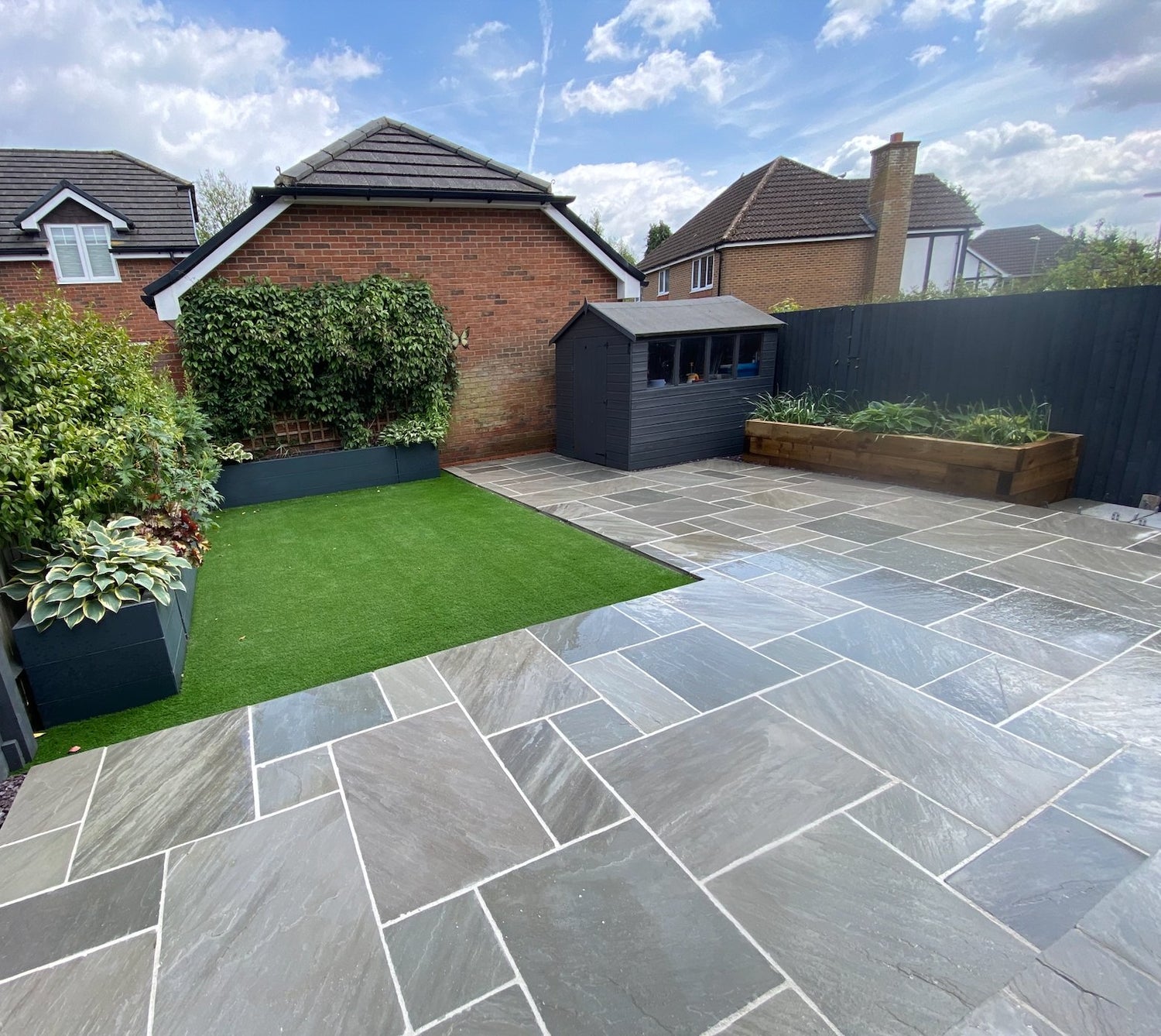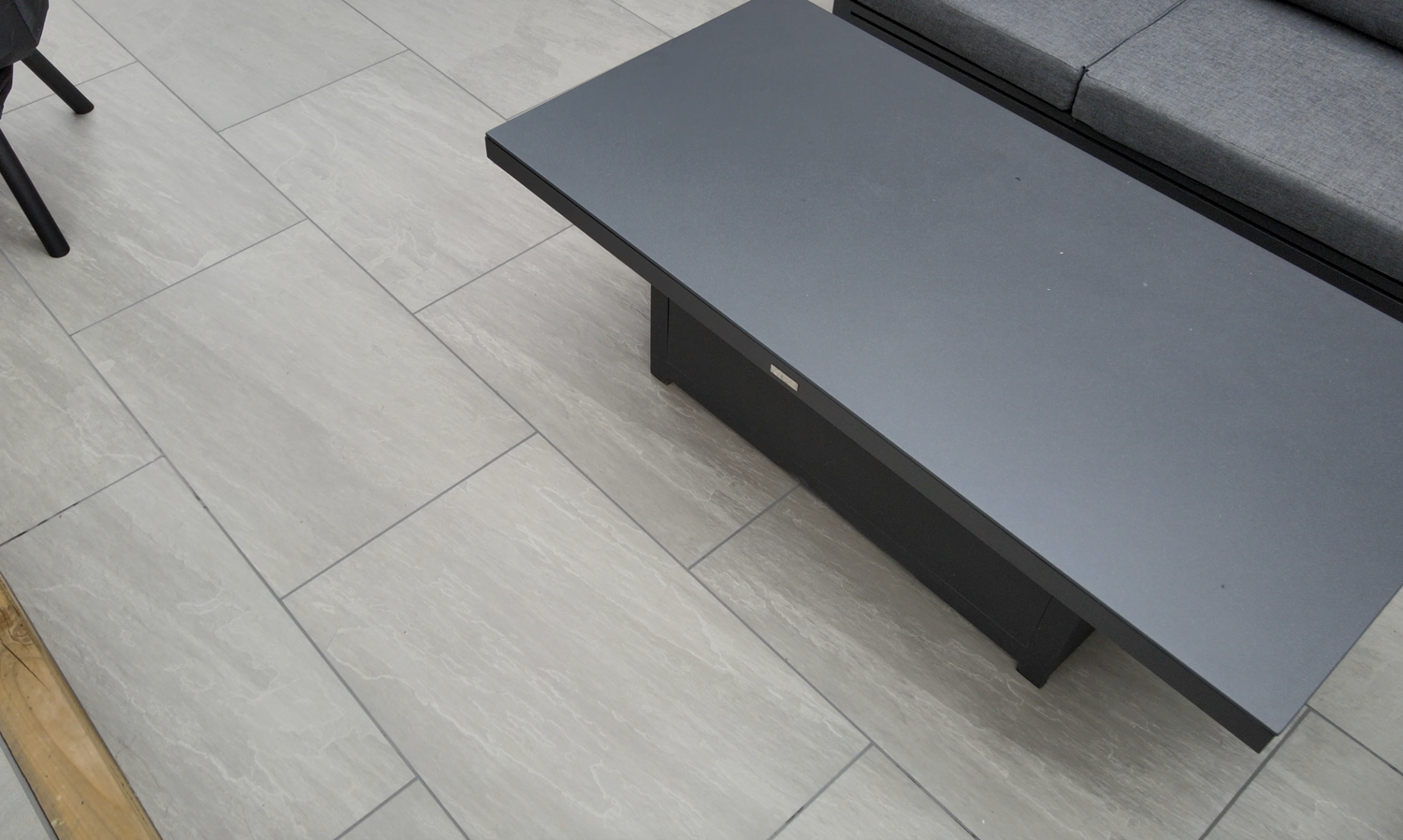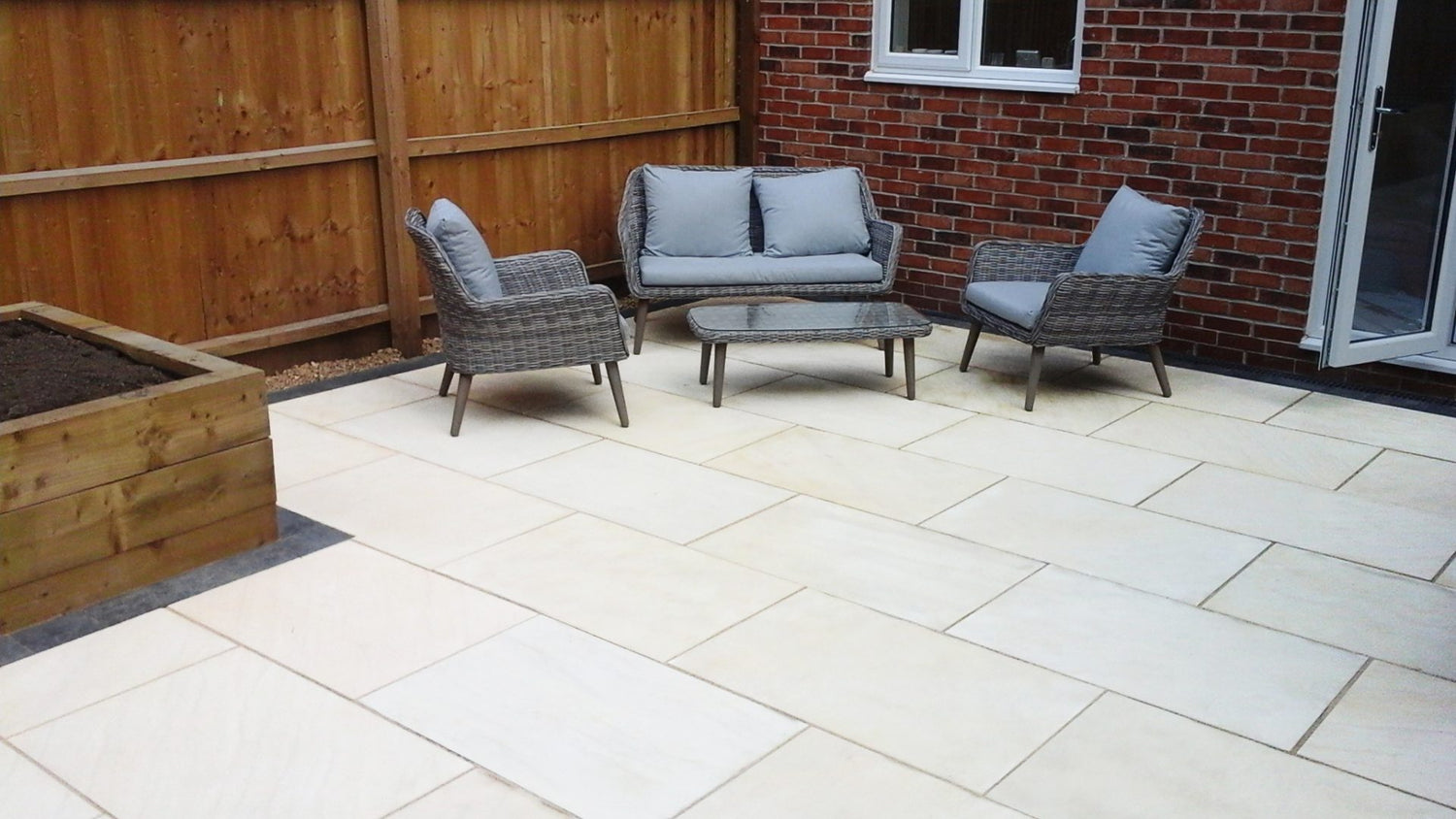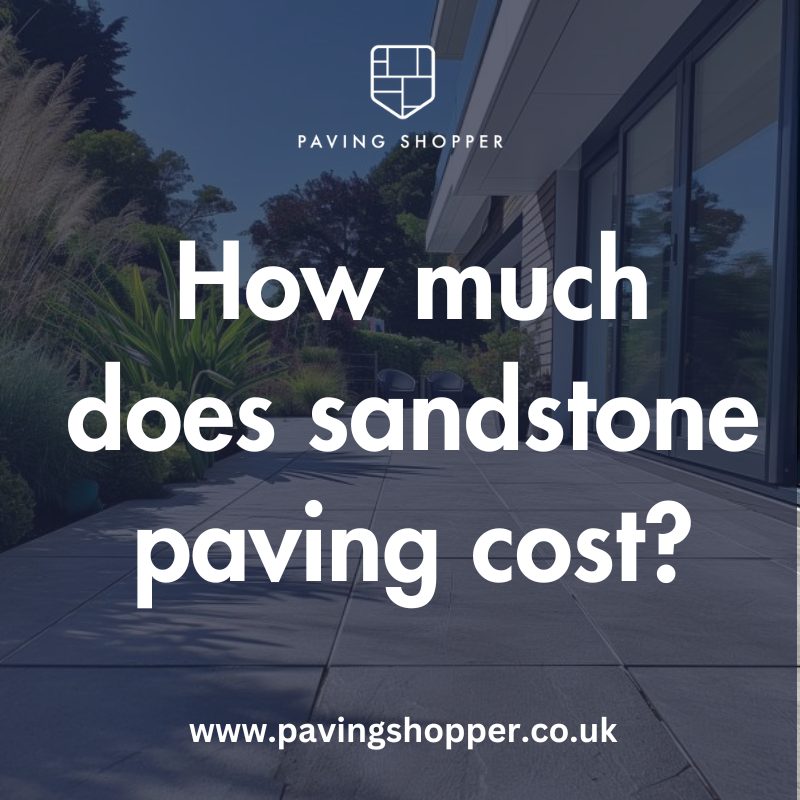
How much does sandstone paving cost?
Share
On average, sandstone paving costs between £22-35 per square metre supply only for materials. This includes smooth calibrated options starting from £22 per m2, while thicker non-calibrated riven finish slabs tend to range from £30-35 per m2 on average.
Several key factors impact sandstone pricing
Cost Breakdown
Typical supply cost is £25/m2 for standard 22mm smooth silver grey pavers. Expect to pay £100-150/m2 fully installed.
Factors impacting price:
Thickness - Industry standard calibrated options are 22mm thick. Non-calibrated tend to be 30mm+. Thicker 60mm+ slabs have extra production costs so are more expensive, around £33-35 per m2.
Finish - Smooth calibrated finishes start from £22 per m2. Riven non-calibrated textures cost £5-10 more due to complex manufacturing.
Colour - More premium blacks, greys and mixed shades command a slight premium over standard greens and buffs. Up to 15% more.
Supply Route - Buying direct from manufacturers instead of retailers saves on markups. But has higher minimum orders.
In summary, expect to pay £22-25 per m2 for calibrated 22mm smooth finish options. While 30-60mm+ riven non-calibrated sandstone range from £30-35 per m2 for supply.
What does sandstone pricing depend on?
- Base Material Grade Higher density, less porous "Silver Grey Sandstone" grade commands a 10-15% premium over standard "Raj Green" type sandstone. As it offers superior structural integrity.
- Production Method Hand-cut traditional quarry options like Mint Fossil are 20-30% pricier than machine-cut flags. As they take far longer to produce.
- Delivery Logistics For mainland UK supply, centralised warehousing saves on transport costs. Direct-from-quarry shipping has added freight expenses.
- Sales Channel Retailers have larger markups to cover showroom costs. Buying direct from paver manufacturers is cheaper but has bigger minimum orders.
- Installation Extras Base construction materials, mortar, grouting and waste disposal all add costs. Expect total install price to be 2x supply rate. Around £100-150 per m2.
How much does a new patio cost?
On average, the cost to install a new patio ranges from £80-£150 per m2. This includes materials, labor, site preparation and other associated costs. More budget-friendly options like concrete pavers typically cost £100-130 per m2. While premium materials like natural stone can run £150-200+ per m2 fully installed. The overall price scales up significantly with the patio size.
How does sandstone compare to concrete, slate and brick pricing?
Sandstone strikes an effective balance - more affordable than premium slate and granite options, but longer-lasting than basic concrete or brick. Its natural texture also offers superior aesthetic charm in most garden settings.
While concrete starts cheaper, quality degrades quicker. And uniform bricks lack character. Sandstone marries quality, longevity and style at a reasonable mid-market price point. Ideal for discerning homeowners wanting high calibre landscaping that doesn't destroy budgets.
What cost factors influence sandstone per m2?
The grade, thickness, texture, design complexity and sales route all impact pricing per square meter. Basic 22mm smooth silver grey costs £22/m2 wholesale, while 30mm+ hand-cut riven mint fossil slate commands £30-35/m2 in bulk.
What thickness options are available?
Popular calibrated thicknesses are 22mm (90kg per m2) and 30mm (120kg per m2). While riven comes in 30mm, 40mm and 60mm+ sizes upwards of 150kg per m2. Improved structural ratings make them ideal for driveways or pool copings.
What texture types does sandstone come in?
Sandstone's natural grain patterns create varied textures. Smooth calibrated options like Raj Green suit modern gardens well. While heavily riven quarry stocks like Pennant Grey offer striking traditional charm reminiscent of old-world Welsh village homes.
What design customisations are possible?
Waterjet carved surface engraving creates unique Moroccan-inspired patterns. Certain premium stones also take well to bull nosing, tapering or chamfered profiling. Bespoke cutting for curves, angles and edge details further enhances aesthetics.
Is sandstone reasonably priced?
At just £25/m2 mid-grade silver grey hits the sweet spot between cost and quality. It outclasses commodity bricks and concrete for longevity, while undercutting premium slates, limestones and granites on price. Allowing budget-conscious buyers access to refined natural stonework.
How does it compare to wood or porcelain alternatives?
Porcelain and composite decking is near maintenance-free but has a manufactured look. Sandstone integrates far better into quintessentially British countryside gardens through sympathetic natural texture and warmth. Giving landscapes a relaxed yet refined personality that artificial materials struggle to match
Related Posts
-

UK Garden Statistics and Trends 2024
UK Garden Statistics and Trends 2024 General UK Garden Statistics The vast majority of UK households have access to ...
-

Can I lay Paving on Soil or Mud?
Technically, yes – you can lay paving stones or slabs directly onto exposed topsoil however, laying a sub-base will e...
-

How Much Does a New Patio Cost?
A new patio in the UK typically costs between £80-£150 per square meter. For a 40-50 sqm patio, expect to pay £2,000-...
-

What Different Sizes Do Paving Slabs Come In?
When planning a patio or outdoor paving project, one of the key decisions is choosing the right size paving slabs. ...
-

Can You Pressure Wash Indian Sandstone?
Indian sandstone is a popular choice for outdoor paving due to its durability and attractive appearance. However, li...
-
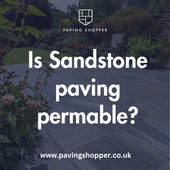
Is Sandstone Paving Permeable? Is it porous?
Sandstone's porous nature enables it to absorb rainfall, qualifying it as a permeable paving variety. However, seali...
-
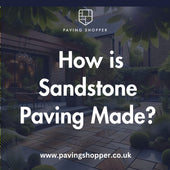
Where Does Natural Sandstone Paving Come From?
Sandstone begins deep underground, formed over eras as minerals and sediments fused under pressure. Powerful forces ...
-

5 Paving Ideas for Small Gardens: Maximise Your Outdoor Space
Front of House When considering paving ideas for the front of your house, it's crucial to select ones that complem...
-

9 Paving Ideas for Front of House: Enhancing Curb Appeal with Style
The facade of a house plays a pivotal role in defining its character and curb appeal, and the choice of paving can s...
-

9 Summer Garden Paving Ideas UK
Summer gardens offer a vibrant canvas for homeowners to express their style while enhancing outdoor living spaces. G...
-

8 Garden Paving Ideas for 2024
It's time to refresh your garden's look for 2024 and an easy way to do that is with some new paving. With so many opt...
-

How to remove moss from patio paving
Moss growth is a common issue for patio paving, especially in damp, shaded areas. While moss may seem harmless, it ca...
-

Why Do Paving Slabs Crack And How To Repair Them
Seeing cracks appear on your patio or driveway can be disheartening after investing time and money into installing be...
-

How to lay paving in winter (Tips & Tricks)
How Cold Temperatures Impact Paving Projects The primary concern when working in cold weather is ensuring proper curi...
-

Sub Bases For Patios
Building the Perfect Patio Base: A Comprehensive Guide When planning an outdoor living space, understanding proper ba...
-
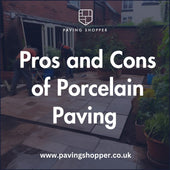
Pros and Cons of Porcelain Paving
Are you considering adding porcelain paving to your outdoor space? It's important to weigh the pros and cons before ...
-
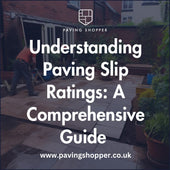
Understanding Paving Slip Ratings: A Comprehensive Guide
A paving slip rating, also known as a slip resistance or anti-slip rating, is a measure of how slippery a surface...
-

Stunning Garden Water Feature Ideas - Enhance Your Outdoor Space
Garden water features are decorative elements that incorporate water into a garden, adding beauty and a sense of ...
-
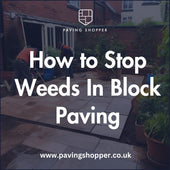
How to Stop Weeds in Block Paving: Expert Tips andTricks
Weeds growing between the blocks of your paving can be an unsightly and frustrating problem. Not only do they make y...
-

How to clean paving without a pressure washer
A patio cleaner is a cleaning solution designed specifically for removing dirt, grime, and stains from outdoor patio...
-

How to Grout Paving Slabs – Expert Tips and Techniques
Pointing paving slabs is an important step in the process of installing them. Grout is a mixture of cement, water...
-
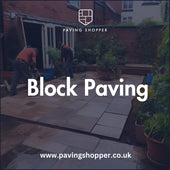
Block Paving Guide | What Does it Cost? | How Much Per m2?
Block paving is a versatile and durable option for creating driveways, patios, and paths. This method involves using...
-
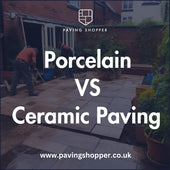
Porcelain VS Ceramic Paving
Porcelain paving is non-porous and more durable than ceramic paving, which is more porous and prone to stains and wea...
-
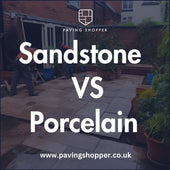
Sandstone V Porcelain Paving - (Style Comparison and Distinctions)
When choosing materials for your patio or driveway, two of the most popular options are sandstone paving slabs and p...
-

Understanding Gradients and Falls for Paving and Drainage (2024)
When it comes to paving and drainage projects, understanding the correct gradients and falls is essential for ensuri...
-
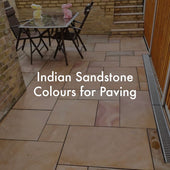
Indian Sandstone Paving Colours for A Patio - A Comprehensive Guide
Indian sandstone is one of the most popular paving materials, celebrated for its natural beauty and the variety of co...
-

Jointing and Pointing For Paving (Sand & Cement Mix)
Patio pointing is important for both looks and durability. It protects the layers under your paving, stops weeds, and...
-

How to Lay Paving on Sand and Cement: Expert Advice and Tips
Paving on Sand and Cement: A Comprehensive Guide When it comes to enhancing your outdoor space, paving is a popular ...
-

Pros and Cons of Sandstone Paving
Pros & Cons of Indian Sandstone Paving Indian sandstone paving is a natural and durable option that adds both bea...
-
Does Patio Paving Need Edging? A Comprehensive Guide
In this article, we'll explore the importance of patio edging, the different types of edging materials available, and...
-

Pet Friendly Paving - What is the best paving for a dog-friendly garden?
Creating a dog-friendly garden requires choosing the right paving materials to ensure your furry friends can enjoy t...
-

Patio Paving Laying Patterns Guide
Paving patterns can transform an ordinary outdoor space into a stunning and eye-catching area that complements your ...
-
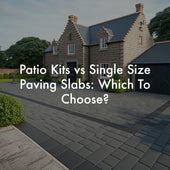
Patio Kits vs Single Size Paving Slabs: Which To Choose?
When designing a patio or outdoor space, one crucial decision is whether to use a patio kit (also known as patio pack...
-
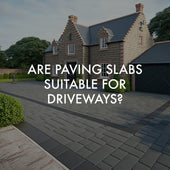
Are paving slabs suitable for driveways?
This is a question many homeowners ask when it comes to choosing the right type of driveway surface for their home. T...
-

How much paving do you need to cover your outdoor space?
Planning an outdoor paving project is exciting, but it’s crucial to accurately estimate the amount of paving needed b...
-

What is the Best Paving for Patios?
When it comes to choosing the best paving for patios, there are a variety of factors to consider, such as durability,...
-
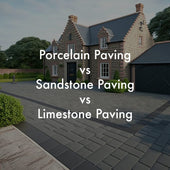
Sandstone v Limestone v Porcelain: The Pros and Cons of Different Garden Paving Materials
Transforming your outdoor space involves choosing the right paving material, and porcelain and sandstone are two of t...
-
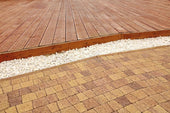
Are Paving Slabs Cheaper Than Decking?
Transforming your backyard into the ultimate outdoor oasis can be challenging when choosing between paving slabs or d...
-
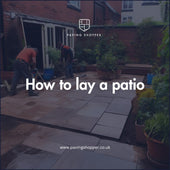
How to lay a patio - An expert guide to laying paving slabs and patterns
There are a few things to consider before laying a patio, such as the type of paving stones and the laying pattern. Y...
-
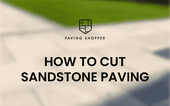
How to cut Sandstone Paving?
When it comes to prepping your garden for a new patio, you may consider different designs that require your paving to...









































